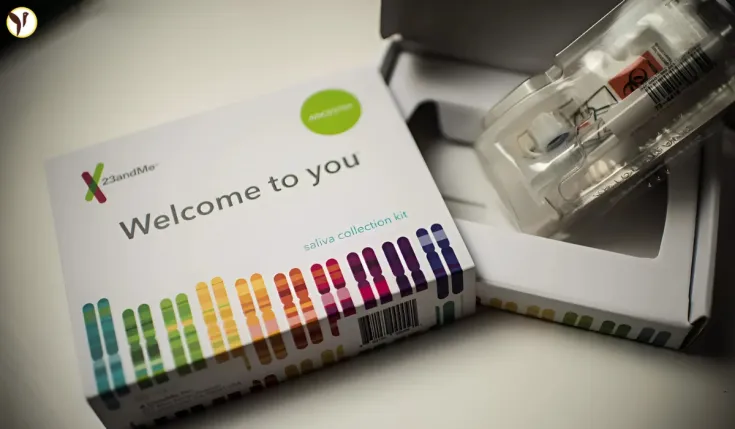In one of the biggest shake-ups in the biotech world this year, Regeneron Pharmaceuticals is acquiring struggling DNA testing firm 23andMe for $256 million through a bankruptcy auction.
What’s catching everyone's attention, though, isn’t just the price tag—it’s the 15 million people’s genetic data that comes with the deal.
From Household Name to Financial Trouble
23andMe was once a household name, known for popularizing at-home DNA kits that could tell you everything from your ancestry roots to potential health risks. But over the past few years, demand dwindled. Consumers became wary—especially after a serious data breach in 2023 exposed sensitive user information.
In March this year, the company officially filed for bankruptcy, setting the stage for a potential fire sale of genetic data—something that quickly caught the attention of privacy watchdogs and U.S. lawmakers.
Lawmakers Demand Accountability on Genetic Data
Given the sheer volume of genetic information collected by 23andMe over the years, the bankruptcy proceedings raised red flags in Washington. Lawmakers pushed for safeguards, fearing that this sensitive data could fall into the wrong hands.
Under pressure, 23andMe agreed to allow a court-appointed overseer to supervise how the company manages and secures user data during the transition.
Regeneron's Promise: “We’ll Respect Privacy”
Regeneron, now stepping in as the buyer, has said it will honor all privacy commitments made by 23andMe and comply fully with U.S. data laws. The company has also promised to explain to the court how it plans to use the genetic data moving forward.
So far, specific plans haven’t been made public, but it’s widely expected that Regeneron will use the data to boost its research in precision medicine and drug development.
What’s Included in the Deal?
The acquisition includes nearly all of 23andMe’s business, except for Lemonaid Health, a telehealth service that the company says it will shut down.
Once the transaction is complete—likely sometime in Q3 2025—23andMe will operate as a fully owned subsidiary of Regeneron.
What This Means for Users
If you’re one of the 15 million people who used 23andMe’s testing kits, your data won’t be sold again—but it will now live under a new corporate roof.
You still have the option to delete your data through 23andMe’s existing privacy settings. But for many, the bigger question is: how much control do we really have over our personal genetic blueprint once it’s been uploaded to a database?
Conclusion
Regeneron's takeover of 23andMe signals a bold step in biotech, but also raises concerns about genetic data privacy. All eyes are now on how responsibly this data will be handled.
Image Source: CNN






